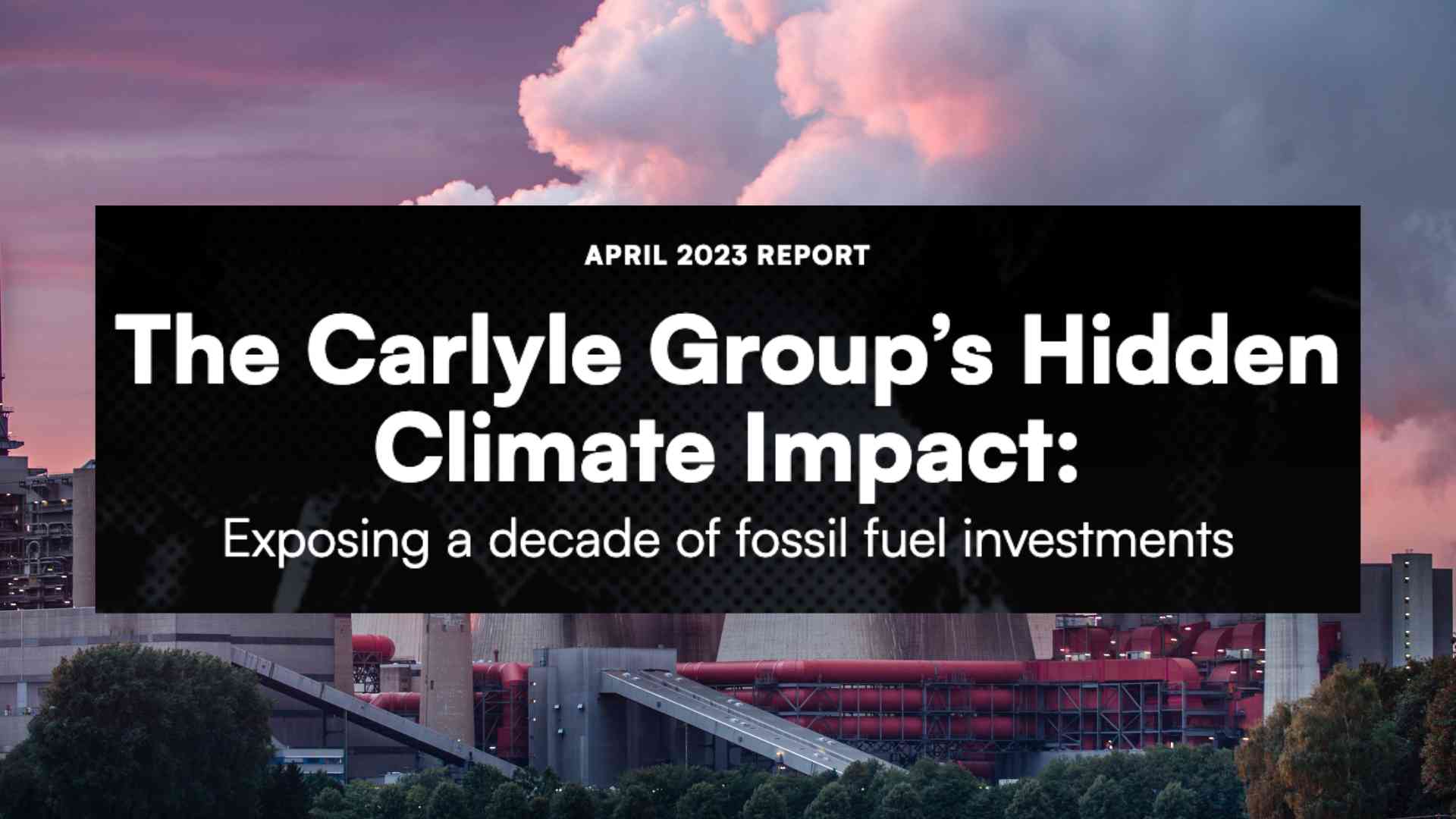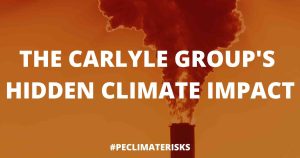
The Carlyle Group’s Hidden Climate Impact
April 27, 2023
Exposing a decade of fossil fuel investments
Carlyle stands out among large diversified private equity firms as having one of the largest energy portfolios—most of it devoted to fossil fuels.
DOWNLOAD THE NEW CARLYLE REPORT
The Carlyle Group’s lopsided energy portfolio has approximately $22.4 billion in carbon-based energy, and $1.4 billion (less than 1 percent of assets under management) committed to renewable and sustainable energy companies.
In other words, for every dollar it invested in renewable energy sources, Carlyle invested $16 in fossil fuels.
Exploiting regulatory exemptions and loopholes, private equity firms like Carlyle have become major greenhouse gas polluters, far away from public scrutiny and with minimal regulatory oversight. Private equity firms stand ready to swoop in and acquire polluting assets sold by publicly-listed companies under public and investor pressure to cut emissions from their operations. Furthermore, large institutional investors such as university endowments, philanthropic foundations, and public pension funds that have set ambitious decarbonization goals to mitigate climate risks in their portfolios are still heavily invested in private equity firms financing polluting assets.
Operating in the most opaque corners of the market, private equity firms have become a significant source of capital for companies engaged in the exploration, extraction, transportation, storage, processing and burning of oil, coal, and natural gas.
Energy investments did some heavy lifting for Carlyle’s profits in 2022, generating around half of the firm’s overall net income, mainly from over $660 million in investment income from NGP Energy, an oil and gas subsidiary.
This study pierces through the private equity veil of secrecy and finds that Carlyle invested billions of dollars in fossil fuel assets which have dumped at least 277 million metric tons of CO2 and other greenhouse gasses into the atmosphere from 2011 to 2021, contributing to the global climate crisis, and harming low-income communities and communities of color on a disproportionate basis.

